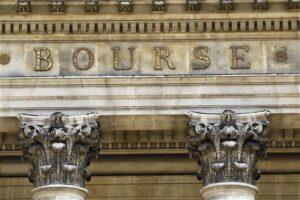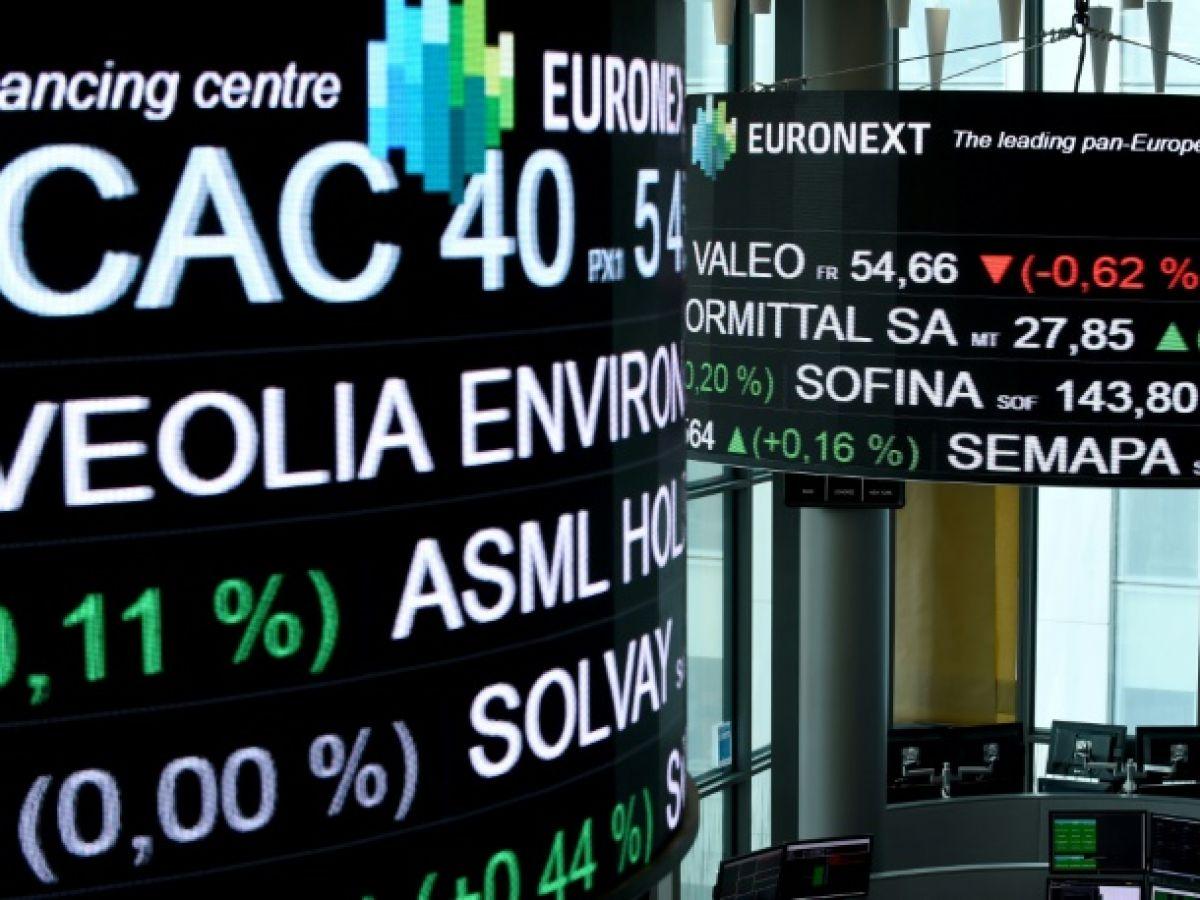The CAC 40 has lost nearly 5% since the beginning of August.
AFP/ARCHIVES – ERIC PIERMONT
Global stock markets are close to ending their worst week since March, with concerns about the Chinese economy and the possibility of a new interest rate hike by the US central bank. In Europe, Paris closed with a decrease of 0.38%, Milan 0.42%, London and Frankfurt 0.65%, although the indices managed to limit their decline towards the end of the session. Over the course of the week, the pan-European Stoxx600 index has fallen by nearly 3%, its largest decline since early July.

Wall Street also opened lower: the Nasdaq fell by 0.93%, the Dow Jones by 0.31%, and the S&P 500 by 0.53%. For the week, the decline in these three indices ranges from 2.5% to 3.3%. In Asia, the Hong Kong Stock Exchange lost 2.05%, weighed down by investors’ risk aversion following the US bankruptcy filing by Chinese real estate giant Evergrande. The global MSCI World index is thus heading towards its worst week since March (-2.38%), during the banking crisis.
Persistently high interest rates
Investors were surprised by the minutes of the latest meeting of the US Federal Reserve (Fed), which suggested that the bank could proceed with new rate hikes or at least maintain them at a high level for a long time. “And as if that weren’t enough,” other data published by the Atlanta Fed on the strength of the US economic activity “fuel concerns that with such strong growth, US inflation could only make a 180-degree turn and rise,” comments Ipek Ozkardeskaya, analyst at Swissquote Bank.
The easing on the bond markets on Friday did not erase the sharp increase of recent days, which has led the yield on the 10-year US bond to its highest level since 2007. Around 1:30 PM GMT, it stood at 4.26%, compared to 4.28% at the previous close. The decline was more pronounced in Europe: the yield on the French 10-year bond is around 3.17%, compared to 3.25% the previous day and a peak of 3.27% on Tuesday. The markets are now focused on Jackson Hole, Texas, where the traditional annual gathering organized by the Federal Reserve (Fed) will take place next week, with other European and Japanese central bankers.
Nervousness in luxury and real estate
“At the same time, concerns about the real estate sector in China and its weakening economy are growing,” comments Sophie Lund-Yates, analyst at Hargreaves Lansdown. On Thursday, heavily indebted Chinese real estate giant Evergrande requested its US placement under bankruptcy proceedings, according to court documents, a measure aimed at protecting its US assets until a debt restructuring agreement is reached. In Europe, sectors sensitive to China, such as luxury, were suffering: LVMH fell by 2.24%, and by 6.47% for the week, its largest decline since May 2022. The giant shopping center company Unibail Rodamco Westfield also fell by 2.92%.
Oil prices fell on Friday, experiencing their first weekly decline since July, as the market worried about China’s demand. Around 1:20 PM GMT, the Brent crude oil barrel for October delivery lost 0.55% to $83.66, and its US equivalent, the West Texas Intermediate (WTI) barrel for September delivery, fell 0.26% to $80.18. Both benchmarks have lost around 3.6% for the week.
In the foreign exchange market, the dollar benefited from its safe-haven status: the euro fell by 0.10% to $1.0861, and the pound by 0.16% to $1.2726. Bitcoin fell by 5.09% to $26,235, experiencing its largest weekly decline since November 2022 (-10.72%), due to investors’ risk aversion.
(With Reuters)
